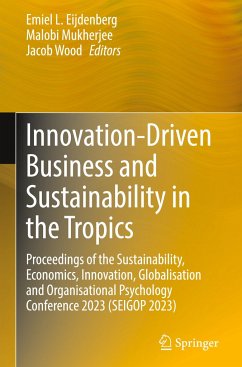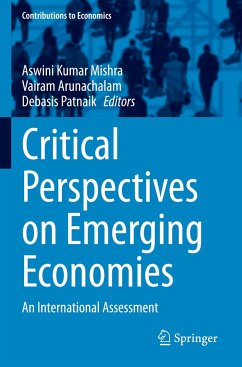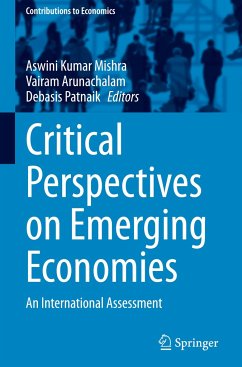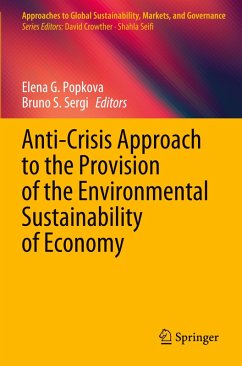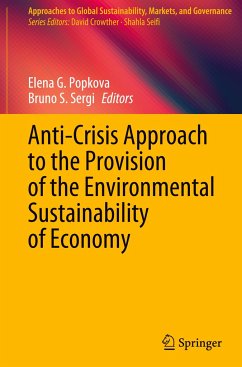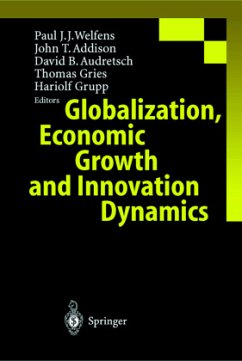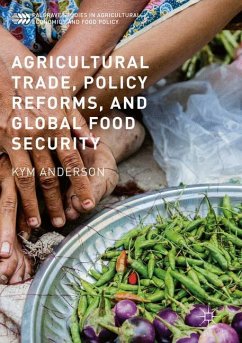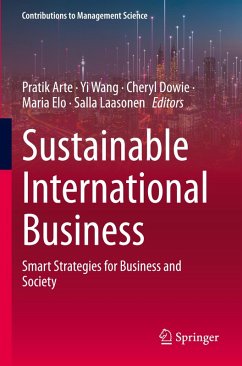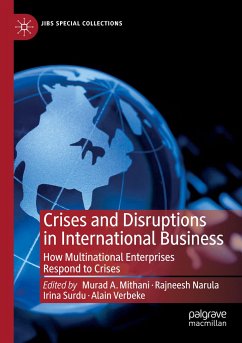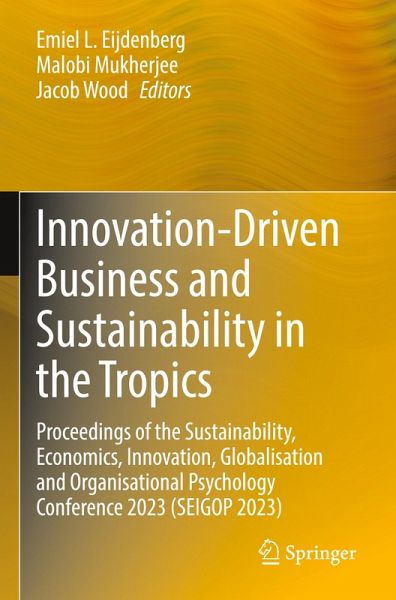
Innovation-Driven Business and Sustainability in the Tropics
Proceedings of the Sustainability, Economics, Innovation, Globalisation and Organisational Psychology Conference 2023 (SEIGOP 2023)
Herausgegeben: Eijdenberg, Emiel L.; Mukherjee, Malobi; Wood, Jacob
Versandkostenfrei!
Versandfertig in 6-10 Tagen
166,99 €
inkl. MwSt.

PAYBACK Punkte
83 °P sammeln!
The edited volume presents the conference proceedings from the "Sustainability, Economics, Innovation, Globalisation and Operational Psychology Conference 2023" (SEIGOP 2023), organized by the Centre for International Trade and Business in Asia (CITBA) at James Cook University, Singapore. This edited volume places the highly dynamic, but also, jeopardized climatological - geographical region of the Tropics centre stage. The region is developing rapidly, with significant progress being made through the development of innovative technologies. The Tropics represent a region in which people live a...
The edited volume presents the conference proceedings from the "Sustainability, Economics, Innovation, Globalisation and Operational Psychology Conference 2023" (SEIGOP 2023), organized by the Centre for International Trade and Business in Asia (CITBA) at James Cook University, Singapore.
This edited volume places the highly dynamic, but also, jeopardized climatological - geographical region of the Tropics centre stage. The region is developing rapidly, with significant progress being made through the development of innovative technologies. The Tropics represent a region in which people live amid the greatest level of biodiversity anywhere on the planet. Nonetheless, propelled by rapid population growth, the Tropics is a region on the rise, with higher living standards and increased levels of international trade and investment. Densely populated emerging countries like India, Indonesia and Nigeria will be among the largest economies of the world by the end of the century. These upward socioeconomic trends are compromised by the impact of climate change on the Tropics' biodiversity. Such developments have forced policymakers, businesses, and local communities to search for more sustainable and creative ways to live and work. For these reasons, this edited volume presents theory-driven conceptual, qualitative, quantitative and mixed-methods studies on the impact of innovation-driven businesses on the complex interplay of socio-cultural, economic, and environmental factors in the Tropics.
This edited volume places the highly dynamic, but also, jeopardized climatological - geographical region of the Tropics centre stage. The region is developing rapidly, with significant progress being made through the development of innovative technologies. The Tropics represent a region in which people live amid the greatest level of biodiversity anywhere on the planet. Nonetheless, propelled by rapid population growth, the Tropics is a region on the rise, with higher living standards and increased levels of international trade and investment. Densely populated emerging countries like India, Indonesia and Nigeria will be among the largest economies of the world by the end of the century. These upward socioeconomic trends are compromised by the impact of climate change on the Tropics' biodiversity. Such developments have forced policymakers, businesses, and local communities to search for more sustainable and creative ways to live and work. For these reasons, this edited volume presents theory-driven conceptual, qualitative, quantitative and mixed-methods studies on the impact of innovation-driven businesses on the complex interplay of socio-cultural, economic, and environmental factors in the Tropics.



